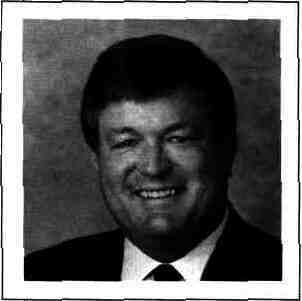 |
Home | Search | Browse | About IPO | Staff | Links |
 |
Home | Search | Browse | About IPO | Staff | Links |
|
ACROSS THE BOARD Shaping Public Opinion — If We
Don't Do It, Somebody Else Will 
by Dr. Ted Flickinger, CLP IAPD Executive Director Political Advocacy Where participation lags, democracy dies. Park and recreation services are people-oriented. It's a grassroots experience that grows from the needs and interests of those who participate. And it is those very people who can speak effectively for park districts and forest preserves. The challenges are many and require judgment, integrity, and dedication from all of us — both layperson and professional. The need has never been greater for a clear and forceful public interpretation of the importance of park districts and forest preserves for our lives and the future welfare of our state. The progress we make depends to a great extent on the support and political involvement of citizens serving as volunteers and as board members. Why citizen involvement? Citizens are taxpayers and, thus, can serve the best interests of taxpayers. In numbers, our citizens can exert tremendous political clout. Citizens can speak with a unified voice to advance recreation services and protect our natural resources. Yet, some board members and citizens don't want to get involved in politics. I cannot emphasize enough: There is nothing negative about political advocacy. It contributes to our democratic process. We are part of politics whether we like it or not. If you don't shape public opinion, someone else will. Political advocacy for our parks and recreation services is bi-partisan. It crosses party lines and political philosophies. But, is it really necessary for parks and recreation professionals and board members to become political advocates? Yes! Parks and recreation services, grants and enabling laws are created by politicians. We have a right and a responsibility to participate in the political process. If we choose not to use that right, then we must accept the decisions politicians make on our behalf. For example, what happened to the Federal Land and Water Conservation Fund that offers grants to park districts and forest preserves to purchase valuable and diminishing open spaces and natural areas? Why did funding drop from $600 million in the 1970s to $50 million in the 1990s? Were values of parks and recreation adequately communicated? The answer is an emphatic no. Politics is far too important to be left just to the politicians! We need citizens who 6 • Illinois Parks & Recreation • January/February 1995 care about great parks and recreation services to get involved and to speak out and speak up for this worthy cause. How often have you contacted your legislator? When was the last time you met with a legislator? When was the last time you invited a legislator to your parks for a dedication, or a ground breaking, or a special event? Are they on your mailing list? We must inform our legislators. We must communicate with our politicians. It works! We know that public funding will be in shorter supply as we enter the 21st Century. Conflict between economic growth and quality of life will increase. Where does this leave park districts and forest preserves? We have major challenges and we must do our research. We must develop our case to maintain and obtain new public funding for parks and recreation. We must show that our natural resources are priceless, and that an investment in recreation is indeed an investment in life. We must communicate the value of park districts and forest preserves to our political leaders and the media. Plan now to attend the IAPD Legislative Conference in Springfield. Call your legislators and make an appointment. Invite him or her to the IAPD Legislative Reception on May 9. Show IAPD's Legislative Advocacy video at a board meeting. Let me know the results of your efforts. IAPD has strength in numbers. Together, through political advocacy, we will continue to advance parks and recreation in Illinois and provide the high quality of life demanded by the citizens of this great state.
TIPS FOR EFFECTIVE LOBBYING * Accept members of the legislature as decision makers. Learn to work with them and to accept their backgrounds, philosophies and goals. * Understand the legislation not only from your point of view but also from the opposing side's view. Document your position. * Honesty, candor and integrity are essential to lobbying. Remember that the legislative process is ongoing — don't burn bridges. Always be courteous and considerate. * When writing to your legislator, be brief and concise. Discuss only one issue in each letter. Identify a bill number and title. * State how you would like your legislator to vote, then state your position concerning the bill and the reasons for it Communicate how the legislation will affect your district. * Use plain or personal stationary if you are writing as an individual. Also write on behalf of your district and use the. district's letterhead and your title. * Send copies of your letter and any response you receive to the IAPD office so that we can follow up on commitments and keep files up-to-date. * Follow up with your legislators to indicate appreciation for their efforts. * Let legislators know you are watching their record with great interest, but don't use threats or promises. * Remember to lobby the Governor's office as well. Illinois Parks & Recreation • January/February 1995 • 7 |
|
Sam S. Manivong, Illinois Periodicals Online Coordinator |